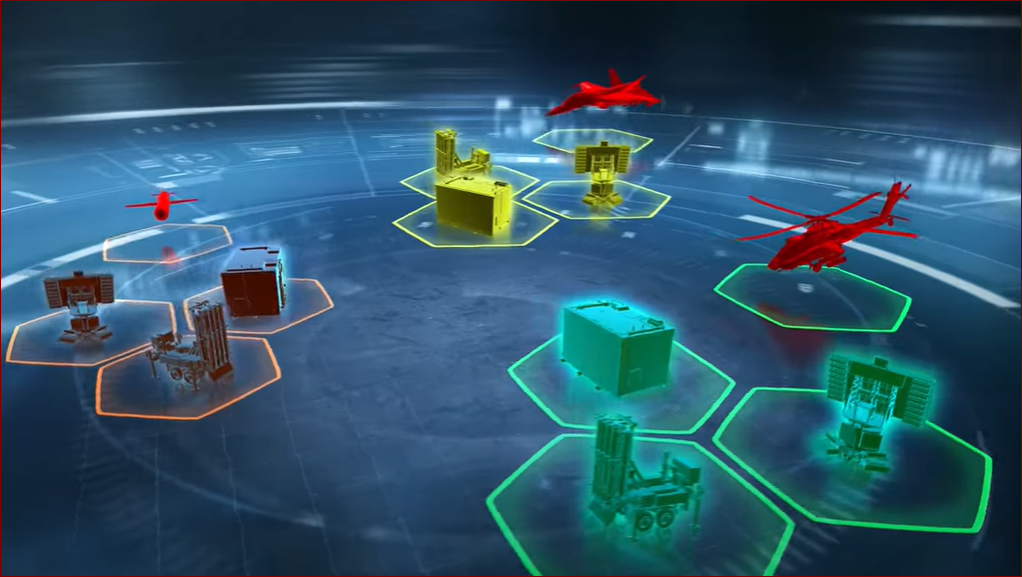In a move that echoes one of the most perilous moments in its recent history, the Republic of Cyprus is acquiring the Barak MX, a sophisticated integrated air defense system from Israel. This decision immediately draws parallels to the S-300 missile crisis of the late 1990s, a standoff that brought the island to the brink of war. This time, however, the geopolitical landscape is even far more complex. The inclusion of Israel—a strategic partner currently embroiled in conflict—creates a uniquely volatile environment. While intended to bolster Cypriot deterrence, this acquisition is an ill-advised gamble. It risks escalating tensions with Turkey, undermining long-term security, and entangling the island in conflicts far beyond its control.
The belief that such military posturing can force concessions from Turkey is a misguided aspiration. Instead, the confrontational foreign policy now pursued by Nicosia risks backfiring badly. The pursuit of security and deterrence, however well-intentioned, may be leading Cyprus down a perilous path.
Old deadlock, new energy flashpoints
Decades of UN-led negotiations to reunify the island have resulted in a complete deadlock. Eight years since the debacle of Crans Montana, and two and a half years into the presidency of Nikos Christodoulides, there is nothing of substance to show. The two sides cannot even agree on basic confidence-building measures. For instance, a proposal for a new crossing to connect Athienou and Aglandjia was declined over disputes about the road’s path relative to the buffer zone, stark example of the intractable political climate. The Greek Cypriot side refused to accept a contiguous road stretching entirely inside the occupied areas, and the Turkish side refused to allow partial passage through the buffer zone.
This long-standing division has been supercharged by the discovery of natural gas reserves in the Eastern Mediterranean. The Republic of Cyprus has delineated an exclusive economic zone to exploit these resources. Turkey, however, disputes these maritime boundaries, arguing they infringe on its own continental shelf and ignore the rights of Turkish Cypriots. This has led to an aggressive Turkish foreign policy, including dispatching survey and drill ships escorted by naval vessels into Cyprus’s claimed exclusive economic zone, creating numerous high-tension naval standoffs.
The Barak MX System
It is against this backdrop of perceived existential threat that Cyprus seeks to upgrade its defense capabilities. The Barak MX, developed by Israel Aerospace Industries, represents a significant leap in military technology over the old S-300s. It is a highly capable and flexible system designed to intercept a wide array of threats—including aircraft, helicopters, drones, and cruise missiles—at ranges up to 150 km.
Crucially, the system is integrated with advanced radars that possess a surveillance range of up to 470 km. When deployed, this gives the system the ability to peer deep into Turkish airspace and monitor military activity, including at major air and naval bases. For Turkey, arguably, according to official statements, this is not a defensive system; it is an intelligence-gathering and offensive-capable tool operated by a strategic rival, Israel, on its doorstep. We should expect Turkey to react.
Déjà Vu
The current situation is reminiscent of the crisis precipitated by President Glafkos Clerides’s decision to purchase the Russian S-300 surface-to-air missiles in 1997. Then, as now, the rationale was to create a credible deterrence against the Turkish air superiority and to pressure Ankara into a more flexible negotiating stance. The result was the opposite. Turkey threatened a pre-emptive military strike to destroy the missiles if they were deployed, stating their presence would be a casus-belli, an act justifying war. The crisis triggered intense international diplomacy, with the US and UK pressuring Cyprus to back down. Ultimately, the missiles were diverted to the Greek island of Crete, and a direct military conflict was averted.
While the parallel is clear, the differences today are stark. The S-300 crisis was a largely bilateral Greco-Turkish affair. The Barak MX introduces Israel as a direct participant. This transforms the dynamic from a localised dispute into a complex triangular power struggle involving three of the region’s most formidable militaries. Moreover, the Barak MX, with its advanced surveillance capabilities, is intrinsically linked to the control of maritime territory and energy resources, raising the stakes significantly.
Ankara will most probably perceive the Barak MX deployment as a direct and unacceptable threat. This is concluded from official statements. It sees the move as part of a broader axis aimed at encircling Turkey and excluding it from the region’s energy wealth. Unlike in 1997, when the United States and the United Kingdom actively intervened to de-escalate, today’s outside powers are notably silent, doing little to diffuse the situation, in a region where a broader war may be imminent.
The Israeli operation of the system in Cyprus will likely be viewed as a profound challenge to Turkish sovereignty, prompting an assertive response. This could range from deploying its own advanced systems in the northern occupied area, increasing its armed forces, establishing naval and other military bases, to a more aggressive naval and air posture in the Eastern Mediterranean. For Israel, the sale is a multi-faceted strategic victory. It strengthens its defense industry and enhances its intelligence-gathering capabilities against a regional competitor.
Cyprus finds itself in a precarious position. In the event of a direct Israel-Turkey conflict, or an Israel-Iran conflict, Cypriot territory could become an immediate target. At the same time the move will not force Turkey into political concessions; on the contrary, it will likely harden Ankara’s position and increase the risk of miscalculation. Cyprus risks transforming itself from a complex problem to be solved diplomatically, into a military outpost in a larger regional power struggle.
Domestic weakness and the legitimacy deficit
The decision-making process is further complicated by the extreme fragmentation of Cyprus’s domestic politics. The political system, weakened since the 2013 financial crisis, lacks cohesion to form a national consensus on such a critical issue. The current president, Nikos Christodoulides, was elected on a fragile coalition of centrist and center-left parties while himself hailing from his own right-wing DISY party. This has led to a government with a weak mandate, often appearing more aligned with the nationalist, far-right ELAM party than its own coalition partners.
Crucially, this profound strategic shift towards militarisation and a deep alliance with Israel was never a central plank of any presidential election campaign. It is a policy being pursued without a clear, explicit mandate from the Cypriot electorate, raising serious questions about its democratic legitimacy. A weak and fragmented political system is less able to conduct the rigorous debate and oversight that such a monumental decision requires.
Conclusion: the perilous path and strategic neutrality
The acquisition of the Barak MX system is a high-stakes geopolitical gambit. It risks locking Cyprus into an escalatory spiral with a much larger and more powerful neighbor, while simultaneously making the island a potential flashpoint in a wider regional rivalry. The potential gains in short-term deterrence are far outweighed by the long-term risks of becoming a proxy battlefield.
Given these immense risks, a strategy of active neutrality and astute diplomacy presents a more prudent alternative. Such a stance would not imply defenselessness but rather a strategic choice to avoid entanglement in military alliances that import regional conflicts. By leveraging its status as an EU member state, Cyprus could focus on diplomatic and legal channels to protect its sovereignty, while prioritizing de-escalation and dialogue. In a region rife with conflagration, the wisest path for a small state like Cyprus may not be to sharpen its sword, but to strengthen its shield through neutrality and diplomacy, preserving its ultimate goal: a peaceful and unified future.
A president’s primary duty is to ensure the safety and security of the people. In the name of security, this confrontational posture achieves the very opposite.
Ioannis Tirkides is the Economics Research Manager at Bank of Cyprus and President of the Cyprus Economic Society. Views expressed are personal. The article is republished from the Blog of the Cyprus Economic Society (https://cypruseconomicsociety.org/blog/blog-posts/)






Click here to change your cookie preferences